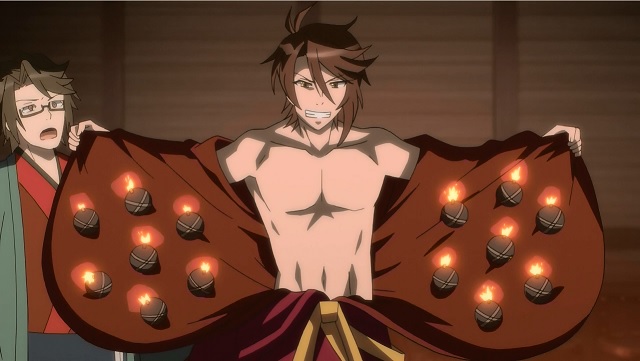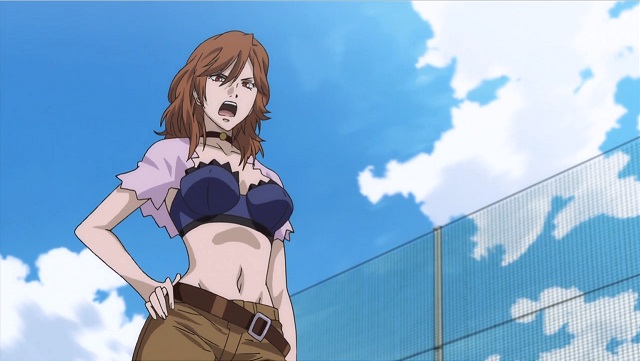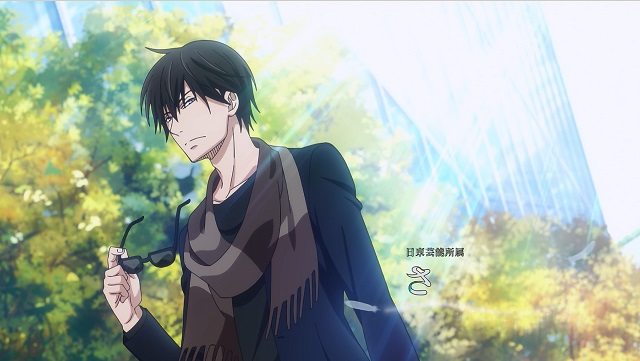So I’m not exactly the target audience for pretty boy shows but the past few seasons there have been a couple I’ve enjoyed, so I try to take a punt on any of the new ones that come out this season, but it has been hard. The crop this time is godawful.

According to the description at MAL Bakumatsu is supposed to be the following:
Kyoto, Japan. The heroine meets a man who gives her a pocket watch somehow leading to a Torii in a shrine, and suddenly it warps her into the Bakumatsu period. In the world of where there is such a difference in importance of value, she tries to find a way to go back. When she meets a man who has crossed time and says, “I will live for you,” a love story between the two blossoms.
Nothing of that is true for at least the first episode, which follows nippleless-chan above and his friend as they steal a treasure from their enemies and somehow end up in an alternate Japan. As the title indicates, it’s all set in the Bakumatsu period and no time lost school girls have been sighted so far. It’s actually an interesting concept, to have two actual historical figures from the period slide into a steampunk version of Japan, if the execution wasn’t so boring. The animation is dull, the character design rather ugly and it all looks and feels flat and cheap.

Staying with the theme of historical figures transplanted to a different setting, Gakuen Basara takes the Warring States/Sengoku period and puts it in a modern high school, complete with headmaster Oda Nobunaga and with the struggle for mastery of Japan replaced with the struggle to win the student council elections. Again, an interesting idea handled crappily, with the first episode introducing a zillion characters. The animation and character design are just as lifeless and the humour is of the “let’s shout more that surely is funny” type. The only advantage it has above Bakumatsu is that there are actual female characters. I always like yankee characters and this teacher qualifies, but she isn’t good enough to keep watching various dullards with famous names slug it out to become student council president.

Finally, I noped out of Dakaretai Otoko 1 I Ni Odosarete Imasu about a minute in, when I saw the yaoi face of our protagonist and having listened to the exposition couple prattle on how he has been the most huggable man in Japan for five years running and I was noo… He’s not even particularly huggable. Reading Vrai Kaiser’s review of the first episode it seems I made the right decision as there was apparantly a spot of light sexual assault thrown in to liven things up. Nope, not for me.